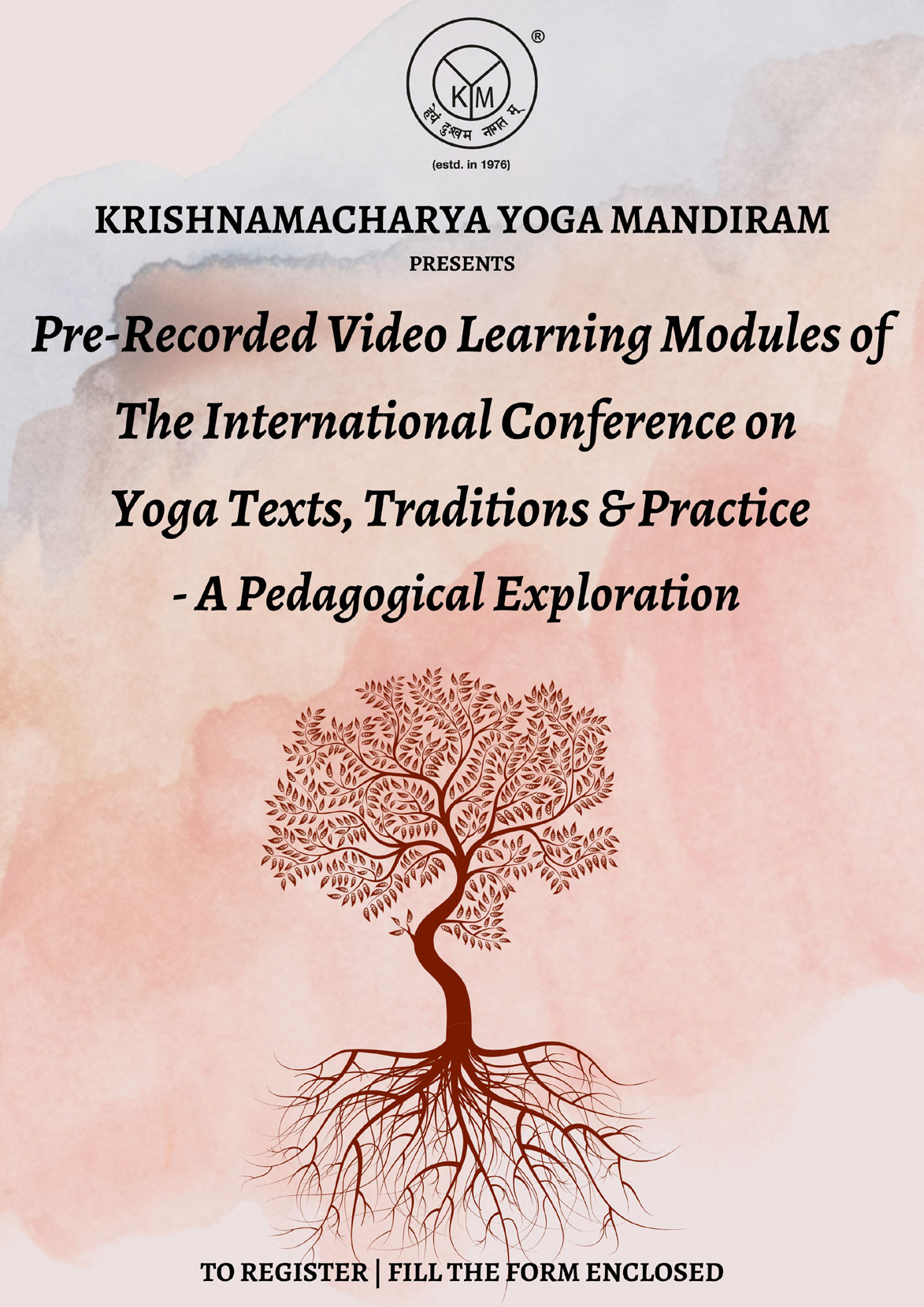Yoga Vidya | Pre-Recorded Video Lectures of the International conference on Yoga Texts, Traditions & Practice – A Pedagogical Exploration
Module Availability | September 15, 2024 to December 15, 2024
Fee | INR 1,000 per participant
Total Lectures | 20
Total Hours | 15
Mode | Pre-Recorded Videos
The International conference on Yoga Texts, Traditions & Practice – A Pedagogical Exploration was hosted by the Krishnamacharya Yoga Mandiram on March 29 & 30th 2024.
In the opening keynote address, Dr Nagaraj Paturi likened the endeavour of Yoga pedagogy to a trekking expedition arranged by an educational institution, where the documentation can at most capture mundane logistical details, and live experience alone provides breath-taking sights and moments of elevation. The presentations by Dr. Vinayachandra Banavathy and Śrī Megh Kalyanasundaram were on Yoga in the textual trail from antiquity and in recent historiography, with a special emphasis on Dhyāna. The sustained traditional importance of Yoga praxis in accordance with Śaiva and Vaiṣṇava–āgama texts was expounded by Dr. T Ganesan and Śrī Abhinav Kadambi. The temple ecosystem as a setting for the thriving of Yoga Sādhanā was the topic of an expert panel featuring Dr. Deepa Duraiswamy, Dr. Ramadevi Sekhar and Śrī Sushant Bharti. Śrīmati Nrithya Jagannathan spoke of the historic contribution of Śrī T Krishnamacharya and Śrī TKV Desikachar as teachers, in interpreting and transmitting Yoga texts with authenticity, and simultaneously making the timeless teaching relevant to contemporary practitioners.
The second day’s proceedings began with a timely special address by Dr. R Elangovan on the importance of continuing education for those pursuing Yoga academics. Dr. M Jayaraman addressed the unbroken traditions represented by the Guruparaṁparā, stressing on the need for a competent teacher’s guidance in interpreting the Śāstra-s, to avoid distortions arising out of a contextual disconnect. Śrī S Sridharan shared the teaching of Śrī T Krishnamacharya on Dhyānam, tracing continuity in structure while rendering the practice accessible to the modern-day practitioner. Dr. Shilpa Pandit emphasised the essential integration of mind and body for holistic wellness, while Dr. Latha Satish outlined the necessity for Yoga therapists to deepen their skills of observation and diagnostics with attention and empathy. Dr A V Balasubramanian in an anecdote-filled oration showcased how Śrī Krishnamacharya and Śrī Desikachar lived what they taught.
Transitioning from texts and tradition into practice and applications, senior therapists of the KYM presented case studies showcasing KYM’s approach to Yogacikitsā, an individual-centric process, evolving to suit the needs of the care-seeker while not deviating from the fundamental principles of Yoga Śāstra. A panel on the future directions of Yoga Pedagogy in a scenario of Yoga’s increasing popularity and the proliferation of Yoga certification followed, with speakers highlighting the need for adaptability rooted in tradition without injustice to the timeless teachings of Yoga.
Both days ended with practice sessions of guided meditation, by Śmt. Padmini Narendran and Śrī S Sridharan.

